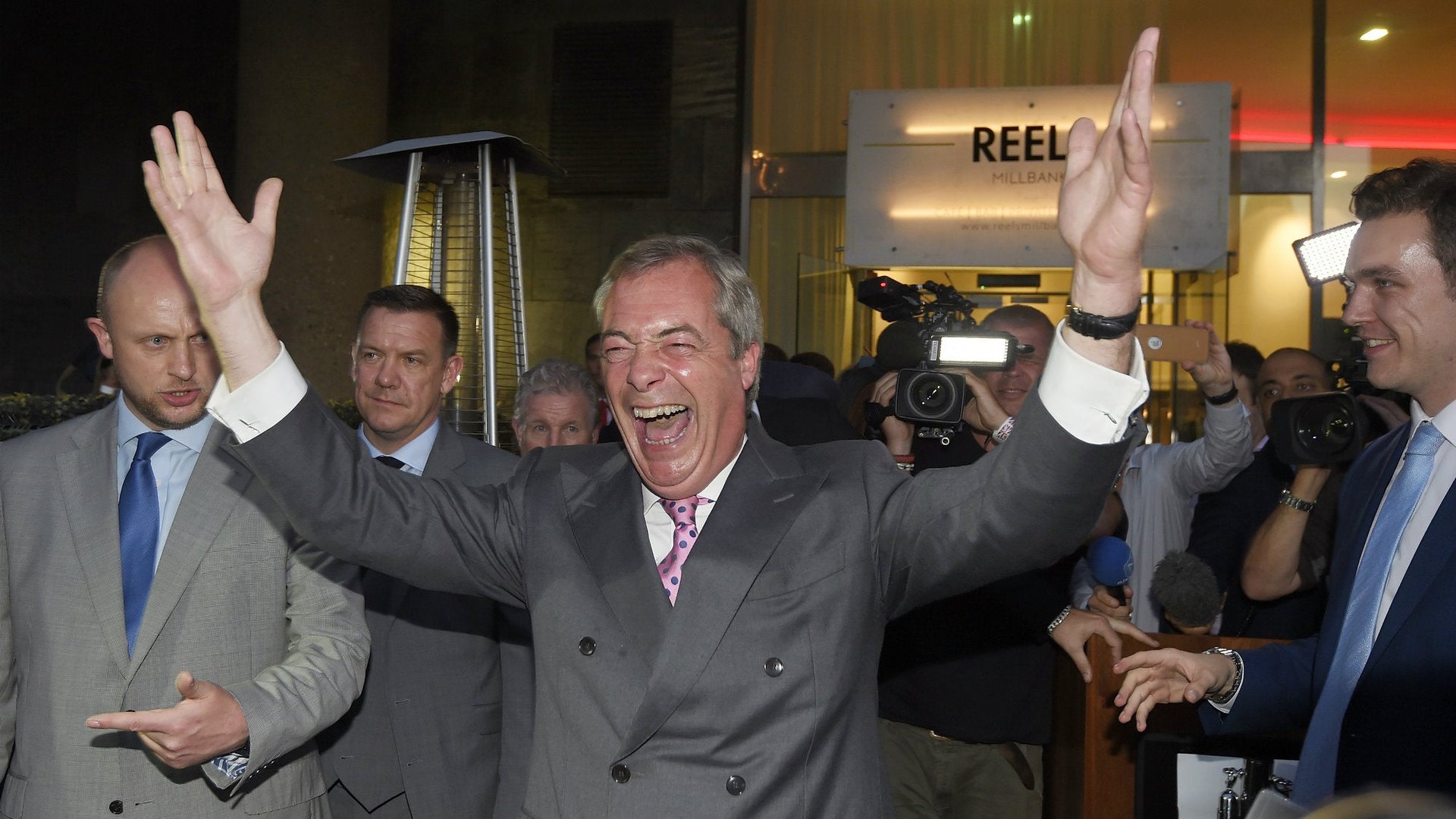It’s official: Britain votes for Brexit, and will quit the European Union
With the votes counted in Britain’s EU referendum, the result is clear. Voters in the UK narrowly chose to exit the European Union—a so-called “Brexit”—by a margin of 52% to 48%.


With the votes counted in Britain’s EU referendum, the result is clear. Voters in the UK narrowly chose to exit the European Union—a so-called “Brexit”—by a margin of 52% to 48%.
This follows months of bitter campaigning in a referendum that pollsters considered too close to call. London, Scotland, Northern Ireland, and a smattering of other areas voted to remain, but the bulk of England and Wales opted to leave.
Turnout was relatively high, which was previously thought to favor a “remain” vote, with around 72% of voters casting a ballot. In the UK’s general election last year, turnout was 66%—the same as in 1975, which was the only other time the country held a referendum on EU membership.
Severing ties with the EU, which the UK joined in 1973, will have broad repercussions for the British economy. Before the vote, the majority of economists, analysts, and other forecasters warned about the negative impact on trade and investment if Britain left the EU’s common market.
The pound plunged against the dollar shortly after the results started rolling in—it’s down 9% on the day at the time of writing, an enormous move in a currency market that typically trades within tenths of a percentage point from day to day. The pound now sits at a 30-year low against the dollar.
In Asian trading, Japan’s Nikkei stock index fell sharply, triggering a “circuit breaker” at one point to calm down trading during sharp moves. When the London market opens at 8am local time, a big fall seems likely; US stock futures are also suggesting a big down day.
Prime minister David Cameron, who campaigned to stay in the EU, is now in an awkward position. His position is tenuous, with his party potentially preferring a different leader—among the favorites is former mayor of London Boris Johnson—to take on the task of negotiating Britain’s separation from the EU.
“Dawn is breaking on an independent United Kingdom,” said Nigel Farage, leader of the UK Independence Party, which has been vehemently agitating for Britain to quit the EU and cut immigration for years. “This will be a victory for real people, a victory for ordinary people, a victory for decent people.”
The UK will not immediately sever ties. Although no country has ever left the EU before, the process could take years, depending on when Britain invokes “Article 50” of the EU treaty, which sets out a two-year deadline for renegotiation of a country’s relationship with the bloc.
The UK may break up too. Scotland’s decisive vote to remain part of Europe prompted its leader, Nicola Sturgeon, to call for a second referendum on Scottish independence. (A previous vote failed in 2014.) “The people of Scotland see their future as part of the EU,” she said.
Leaders from other European countries and EU bigwigs will meet today and over the weekend to come up with their response to what might be a messy divorce.
Read more of Quartz’s coverage of Brexit:
- Britain votes to leave the EU. What happens next?
- Could Brexit spark the breakup of the UK?
- As markets plummet, leave campaigners say it’s not their fault
- Brexit could trigger a wave of exits throughout the EU
- The British pound is getting crushed
- “Dawn is breaking on an independent United Kingdom”: Ukip’s Nigel Farage claims a Brexit victory